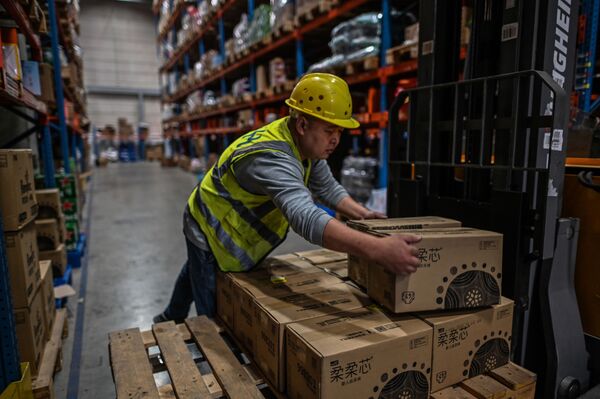The holiday was commonly perceived as a celebration for single people only, before a massive boom in online shopping and e-commerce growth in China made it the most keenly awaited day for shoppers all around the world.
As Alibaba extended its Singles’ Day promotions period, the Chinese e-commerce giant recorded transactions hitting $74 billion by Wednesday evening since the shopping event started on 1 November, with reported growth of around 30 percent compared with 2019 sales revenues. According to Alibaba, more than 30,000 brands from over 220 countries and regions participated in this year's global shopping festival.
The Global Times reported Xiaomi, Huawei and Midea were the most welcomed brands among online-shoppers, and the most popular export destinations were the US, Russia and France.
Alibaba’s online retailer Tmall reported the peak of 583,000 orders per second on 11 November, as consumers looked for the best deals and discounts.

Although the $34.5 billion stock market float of Alibaba’s fintech affiliate, Ant Group, was suspended on the Shanghai and Hong Kong stock exchanges a day after boss Jack Ma was summoned by Chinese regulators, his company is to break another record.
In the wake of the coronavirus pandemic, consumption shifted to an online-based model more than ever before, as e-commerce made shopping safe and its whole concept perfectly complied with a range of COVID-related restrictions. According to the United Nations Conference on Trade and Development data centre, the share of the US e-commerce spiked to 16.1 percent between the first and second quarter of 2020. Similar changes are also observed for China, where the share of online retail in total accumulated retail sales between January and August 2020 reached 24.6 percent, up from 19.4 percent in August 2019 and 17.3 percent in August 2018.
As for China, its economy has reported growth recovery from the pandemic, and the government expects its measures and policies such as providing industries with a financial stimulus and pushing inbound tourism will not only reduce the unemployment rate but will extend growth in the post-COVID country.

